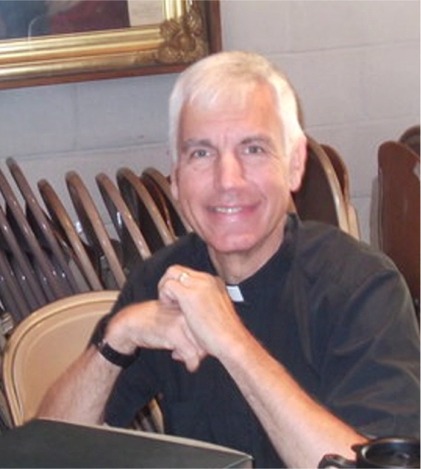42 They devoted themselves to the apostles' teaching and fellowship, to the breaking of bread and the prayers.
43 Awe came upon everyone, because many wonders and signs were being done by the apostles. 44 All who believed were together and had all things in common; 45 they would sell their possessions and goods and distribute the proceeds to all, as any had need. 46 Day by day, as they spent much time together in the temple, they broke bread at home and ate their food with glad and generous hearts, 47 praising God and having the goodwill of all the people. And day by day the Lord added to their number those who were being saved. Acts 2:42-47 NRSV
I think there is no more difficult task than to have a sense of "human community". In days past it wasn't so difficult. Family gatherings, neighborhood parties were part of the routine of life. In 1984, an important decision for the soon to be married couple was what parent they would be celebrating the holidays with.
In the last twenty years, however it has become a lot more complicated. Families, like mine, have a challenge in getting together. For example, my daughter is in Anchorage ,Alaska, my son is in Buffalo, NY, and my brother is in Mobile, Alabama. As far as neighborhoods go, it rare that you hear of a block party. Work hours, commitments for parents that have children in sports, again make the odds greater of forming a sense of community.
I think you could even go so far as to stay that the "online" sites such as "Facebook" seem to do a better job of community as well as connection with others. I even think I have heard of a "virtual" on line church!.
All of this challenges one of the reasons the gospel was so effective, the community known as the church. Our scripture passage above details that the early church was not a lone ranger operation. Once the early believers let the Holy Spirit prevail there were not only "signs and wonders" but a heartfelt desire to gather to learn about Jesus, have fellowship, pray, and celebrate the Lord's supper. Added to that was the desire to help others, they became "lights in the darkness". On the latter, a commentator noted that the Christians were ridiculed by pagans because they helped the less fortunate.
It must have worked because the church became stronger rather than weaker, especially as indicated by the final verse in the passage.
Returning to the 21st century, how do we rate? How well do we do? How is our commitment to worship as a community of faith? How is our commitment to Holy Communion? How is our commitment to grow in the Word? How is our commitment to help others in our church, then also to have a commitment for others as well? I think if we were honestly answering the questions, we would probably feel there are some areas we respond well, and others, not so much.
After leaving the faith for a while in College, it was the body of believers that made the difference, and I came back. May we ask God's help to be the spirit lead community of faith? In doing so may we see God adding to our number as well?
Pr. John Van Haneghan


